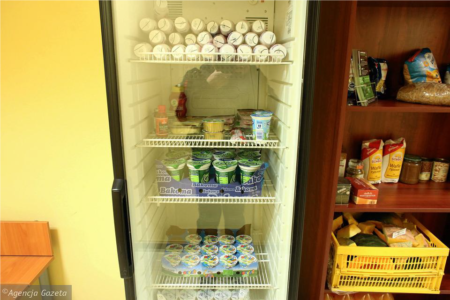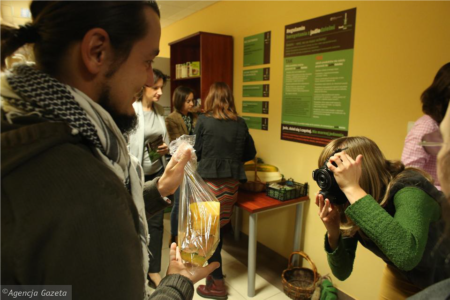Waste Flow
Organic Waste (Food Waste)
Impact on PESTEL categories
Political, Economic, Social, Environmental, Technical, Legal
Location of the good practice
Urban communes of the Łódź Metropolitan Area
Stakeholders involved
Residents, non-governmental institutions, local authorities
Keywords
Biodegradable, Sustainable, Waste reduction
Description
About 9 million tons of food is wasted every year in Poland (Polish Food Bank). An average Pole throws in bin 235 kg of food per annum. These statistics position Poland fifth among the countries wasting most food in the EU. This has become a serious social issue, with the growing consumption and raising the living standard in Poland. The idea of a food-sharing centre is to reduce the amount of waste being generated. In such place, everyone can come and take the food they need from the shelves or fridges. In the case of food brought in, limitations may apply to products, for which it is difficult to determine their shelf life (e.g. raw meat, eggs, unpasteurized milk).
Objective
Establishing at least one food sharing centre in each urban and urban-rural commune of the Łódź Metropolitan Area shall hopefully result in reduction of food waste, diminish the overall amount of waste for enhanced waste management, sharing food with those in need. The network of food sharing centres would considerably contribute to reducing the overall amount of municipal solid waste generated. Considering that averagely 200 kg of food is wasted per capita, and the overall population of region being examined is 1 million, the total mass of food being wasted is potentially as much as 200,000 tons per year. If only 10% of this food would have been shared there would already be significant reduction of costs associated with waste management as well as saving time.
Pictures



